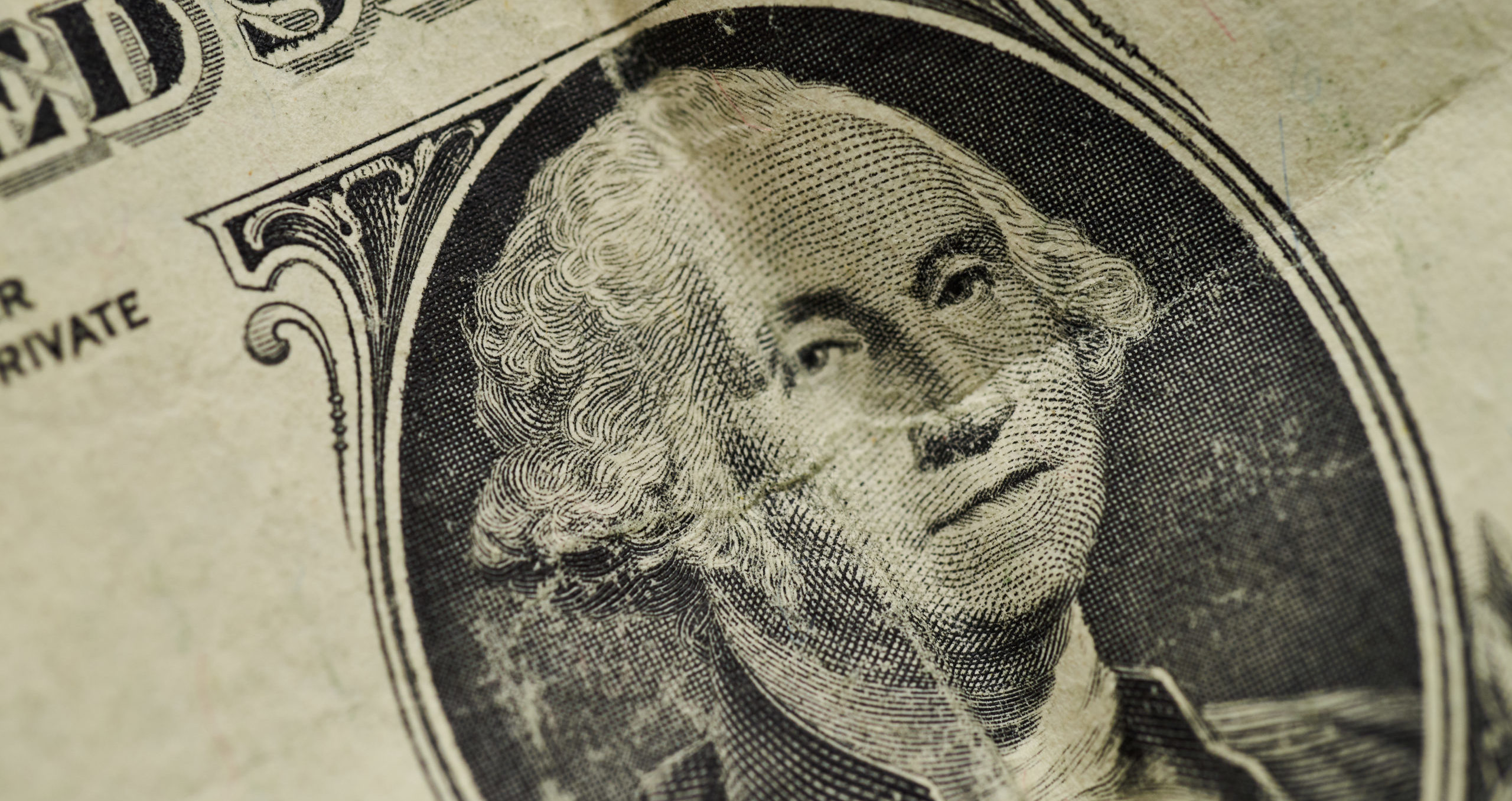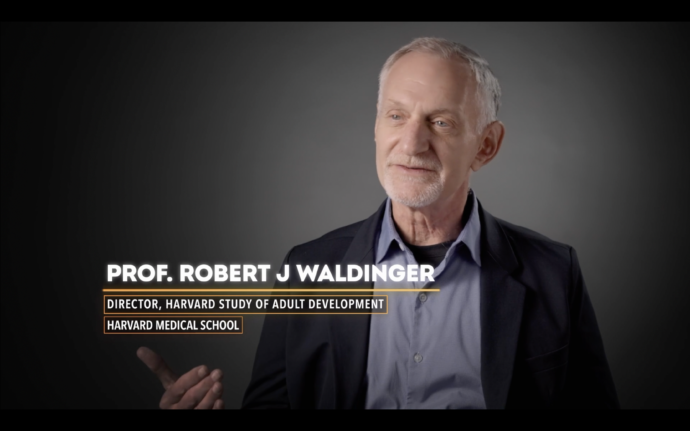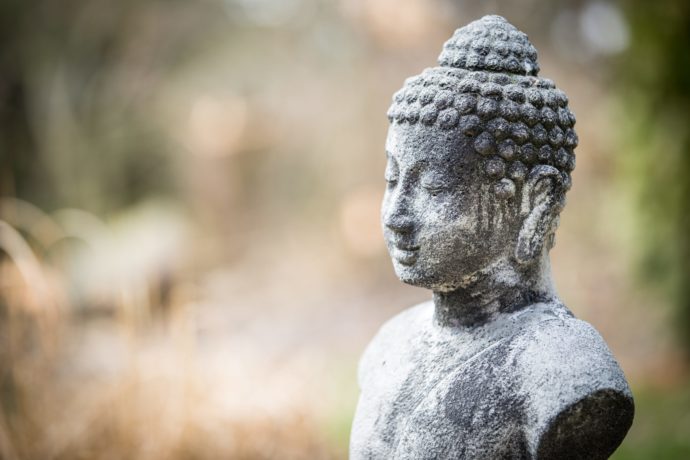
About $75,000, It Turns Out.
“If you say that getting the money is the most important thing, you’ll spend your life completely wasting your time. You’ll be doing things you don’t like doing in order to go on living, that is to go on doing things you don’t like doing, which is stupid.”
– Alan Watts
Cash Rules Everything
Finances are at the center of so many of our lives. We need money to provide for almost all our basic needs.
In and of itself, money is empty – we can’t eat it, it can’t keep us warm, and it doesn’t act as a roof over our heads. While wealth itself cannot provide food, shelter, or warmth, it can stand-in for all those things, becoming a representation of everything that makes us feel secure.
When money comes to symbolize emotional security, we give it a huge amount of power. So much so that it often becomes the central focus of our lives, the measure by which we grade our success and happiness.
When this happens, the simple, functional purpose of money can easily be lost. Instead, we are encouraged to gather wealth beyond what is necessary because we come to associate money with feeling safe.
Our Working Lives
Step back and survey the sources of income in your life, and what it takes to get that money. For some, money comes from a single source, a full-time job. While more and more commonly, many of us string together part-time and freelance work to earn money. This layering of extra jobs is especially common in cases where debts need to be paid, loans paid down, or a family supported.
The same work that supported an entire family a few decades ago may now only support a single person, and often not as comfortably. The costs of education, healthcare, and housing have all drastically increased while workers have faced stagnating wages in all but a few select fields.
For too many of us, money is in short supply, and staying financially secure requires hard work. However, others of us earn enough to take care of our needs, yet we still find ourselves working longer and harder.
Money stops being a means to necessary ends.
After our housing, food, clothes, transport, and some comforts are in place, where do our earnings go? All-day long, ads encourage us to believe that money buys status. A better house, a newer car, a Rolex. All these things are tied to a sense of success, and all can be purchased.
Yet none are themselves necessities, and rarely do they deliver lasting satisfaction. The danger is that as we become accustomed to luxuries, they may begin to feel like necessities. This sets the stage for wealth to seem like the most important thing in life.
We can all agree that money is important. But only to a point.
The Magic Number
In 2010, a now-famous study approached this question of balance from a surprisingly quantitative perspective.
The study asked, how much money is enough?
The Princeton Study from economists Daniel Kahneman and Angus Deaton found that:
“Perhaps $75,000 is a threshold beyond which further increases in income no longer improve individuals’ ability to do what matters most to their emotional well-being, such as spending time with people they like, avoiding pain and disease, and enjoying leisure.”
The crucial concept here is the idea of diminishing returns: in this case, the point at which the time and effort required to earn above $75,000 begins to erode the pleasures and security that money offers. Staying long hours at the office, missing time with family and friends, staying on a call, and generally having a life consumed by work.
The dollar amount in the Kahneman and Deaton study has since been updated. A 2018 study from Andrew T. Jebb and his co-authors sought to replicate the findings of Kahneman’s threshold for happiness study. Using Gallup Poll data from nearly two million people, they found an interesting wrinkle. They confirmed that $75,000 was typically sufficient for someone to achieve emotional well-being.
What is Emotional well-being?
Emotional well-being refers to a subjective sense of inner peace, health, and security. It’s the sense that one is not in danger of physical harm or financial ruin.
But they added a life-evaluation, that is, a set of questions about whether people feel that they are thriving. Succeeding at work, supporting themselves and helping others, and existing in a positive communal or social environment, in short, living a good life. The 2018 study estimated that, in North America, the average person reaches this sense of thriving – sometimes called “income satiation” — at $95,000.
What Money Can’t Buy
These figures raise the question of what lies beyond. After we can pay the rent and the heat, after we find clothes we like and food we look forward to cooking, after we get home from work, what then?
That is where the real work of living begins. After our needs are met, the real work is to find what truly matters to us. We come face to face with our values. In contrast, there is little intrinsic value in a sports car or a gold watch. We soon come to take such new shiny objects for granted. What we seek is to be seen and to feel appreciated. We hope for people around us to be kind and caring. Nothing we can buy can deliver those feelings, only fleeting imitations of them.
Finding Purpose in Values
Once we put aside cars and watches, we may actually find it more difficult than ever before to discern what gives our lives purpose and promise. Without the advertisements and self-comparison, there may seem to be great uncertainty about what we should aim for.
Navigating this uncertainty is the work of the Lifespan Research Foundation. Combining the wisdom of the Harvard Study of Adult Development and navigational tools of the Roadmaps for Life course, it is our organization’s mission to help people live in accordance with their personal values.
This navigational work can be difficult, to be sure. It requires the challenging of ideas, the changing of routines, and perhaps even the loss of some comforts. Yet the results can be deeply gratifying. The feeling of actively living in accordance with our values is often more pleasurable and far more enduring than something purchased might bring us.
In a state of accordance, we are open to following our passions, loving the people around us, and living fully well.
The best investment we can make is in ourselves. It is an investment that accrues value every day and that pays dividends to the people around us and in our own well-being. Spending our time and energy to foster relationships, build community, play, and feel the joy and wonder of being alive. I believe Alan Watts would consider a life filled with such investment time well spent.
Regardless of your life stage, the Lifespan Research Foundation is here to help you determine your next step. Our course for individuals is a great place to start.


